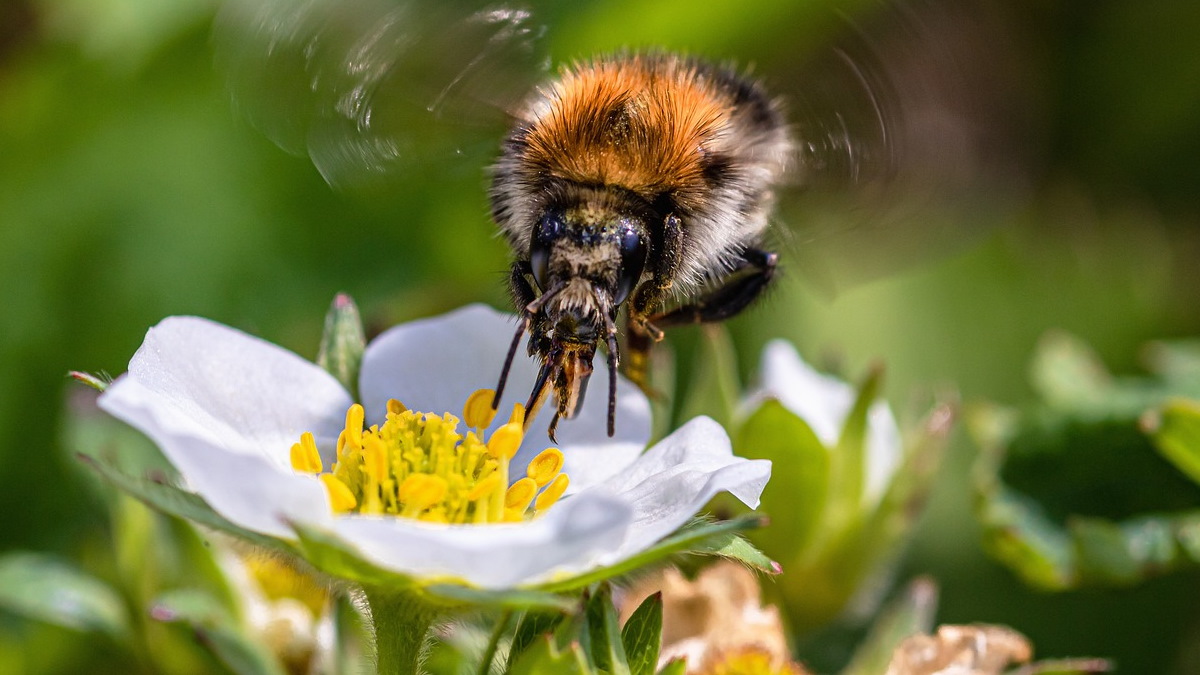A study published in the PNAS Nexus journal this week found that fertilizer confuses bees and discourages them from landing on flowers which had it applied. Furthermore, it’s another study that points to the adverse effects of imidacloprid, a popular pesticide that mimics the effects of nicotine on the central nervous system of insects.
Flowers attract bees not only by their smell and color but also by using a small electric field, which bees recognize. Adding fertilizer can change that electric field, driving the pollinators away from what is a viable food source for them. The study aimed to find out whether fertilizers affect the color, smell or electrical charge of flowers visited by bumblebees. “There are a number of cues that bees use to decide which flower to land on. Like us, they are attracted by certain smells and colors, but bees rely on an extra feature: the electric field of a flower.
As bees fly through the air, their bodies become positively charged. When they came across negatively-charged flowers, their small bodies sense the flower’s electric field like a magnet. When they pollinate, the bees change the flowers’ electric field. The next bees that come along will be able to tell from the electric field that these flowers are likely tapped out, and will skip them entirely,” explains Science Alert, an outlet reporting on the study. While the study didn’t find that the imidacloprid sprayed on a field changed the color or smell of the flowers, it unfortunately found that it affected the “magnitude and dynamics” of the electric field, effectively blinding the bees.
“If you imagine that in terms of vision, it’s like that light is too bright and it’s blinding them,” Ellard Hunting, a study author and biophysicist from the University of Bristol, told Insider.
















No comments:
Post a Comment